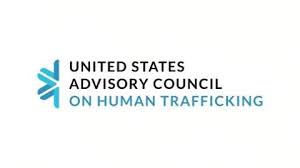At the core of preventing and healing from violence are hope, health, and well-being. When individuals do not have access to all the elements that contribute to their well-being, they are forced to make tradeoffs that increase their vulnerability to perpetrating crime or experiencing violence. Care is fundamental to our approach. It involves creating a world rooted in deep respect, mutuality, reciprocity, nourishment, and life-affirmation, freeing us from relationships of domination, control, and violence. Black feminist scholar Saidiya Hartman stated, “Care is the antidote to violence—we do not yet know a world where people learn first and foremost that others are to be loved and cared for.” This concept is echoed globally: “In our context, survival is collective, and so is care.” It is present in Indigenous models that place care at the core of our community and work, recognizing that healing and survival are collective endeavors. By integrating these principles into our practices, we honor the wisdom of Indigenous communities and create a more inclusive and supportive environment for all survivors.
Care is not just shown through acts of kindness from one person to another. It is shown in the language we use to describe trafficking and people who are impacted. This language can shape perceptions, reinforce values, and drive action. Care is shown in how we approach “meaningful engagement.” We must look at equity as a process and an outcome by asking which survivors are we engaging, and how are we ensuring that their voices are front and center in the conversation? Our solutions must be rooted in the experiences and knowledge of those who have been most directly impacted.
This kind of deep, collective care requires acknowledging that profound injustices have continued to beleaguer the criminal justice system and that we must work to repair them. It means honoring that the rightful place of individuals who have been directly impacted by trafficking is at the forefront and center of our efforts to end trafficking, and developing a clear roadmap that outlines what meaningful engagement with survivors looks and feels like beyond simply exploiting survivors for their stories.4 Because of our inability to imagine collective care and infuse it into our anti-violence efforts, survivors who need services the most have been the least likely to receive them.
Throughout this report, we highlight the need for systems and services to meet the needs of survivors rather than asking survivors to change to fit the programs that were not designed with their care in mind. We invite you to critically review the recommendations herein. Together, we can create a world where care, respect, and mutual support are at the heart of our efforts to prevent and heal from violence. Let us work collectively to ensure that every survivor’s voice is heard and valued, and that our systems truly serve, and are designed by, those they are meant to protect. Our collective engagement and commitment are crucial in the path toward a more just and caring society.
About the Council
The United States Advisory Council on Human Trafficking (Council) comprises 13 survivor leaders who bring their expertise and experience to advise and provide recommendations to the President’s Interagency Task Force to Monitor and Combat Trafficking in Persons (PITF) to improve federal anti-trafficking policies.
The Council was established on May 29, 2015, in Section 115 of the Justice for Victims of Trafficking Act of 2015, Pub. L. 114-22, also known as the Survivors of Human Trafficking Empowerment Act. In December 2022, January 2023, and February 2024, the President appointed members of the Council to:
- Provide advice and recommendations to the U.S. government, specifically the Senior Policy Operating Group (SPOG) and the PITF, to strengthen federal policy and programming efforts that reflect best practices in the anti-trafficking field.
- Review federal U.S. government policy and programs intended to combat human trafficking, including programs relating to the provision of services for victims.
- Gather information from U.S. government agencies, states, and the community for the Council’s annual report.
- Publish an annual report that contains the findings derived from reviews conducted on federal government policy and programs.
- Serve as a point of contact for federal agencies reaching out to survivors of human trafficking for input on anti-trafficking programming and policies in the United States.
- Represent the diverse population of survivors of human trafficking across the United States.
The Council brings expertise from members’ personal experiences of human trafficking as well as members’ ongoing work and leadership in various national, state, and local anti-trafficking efforts. Information about some Council members is provided on page 6.

